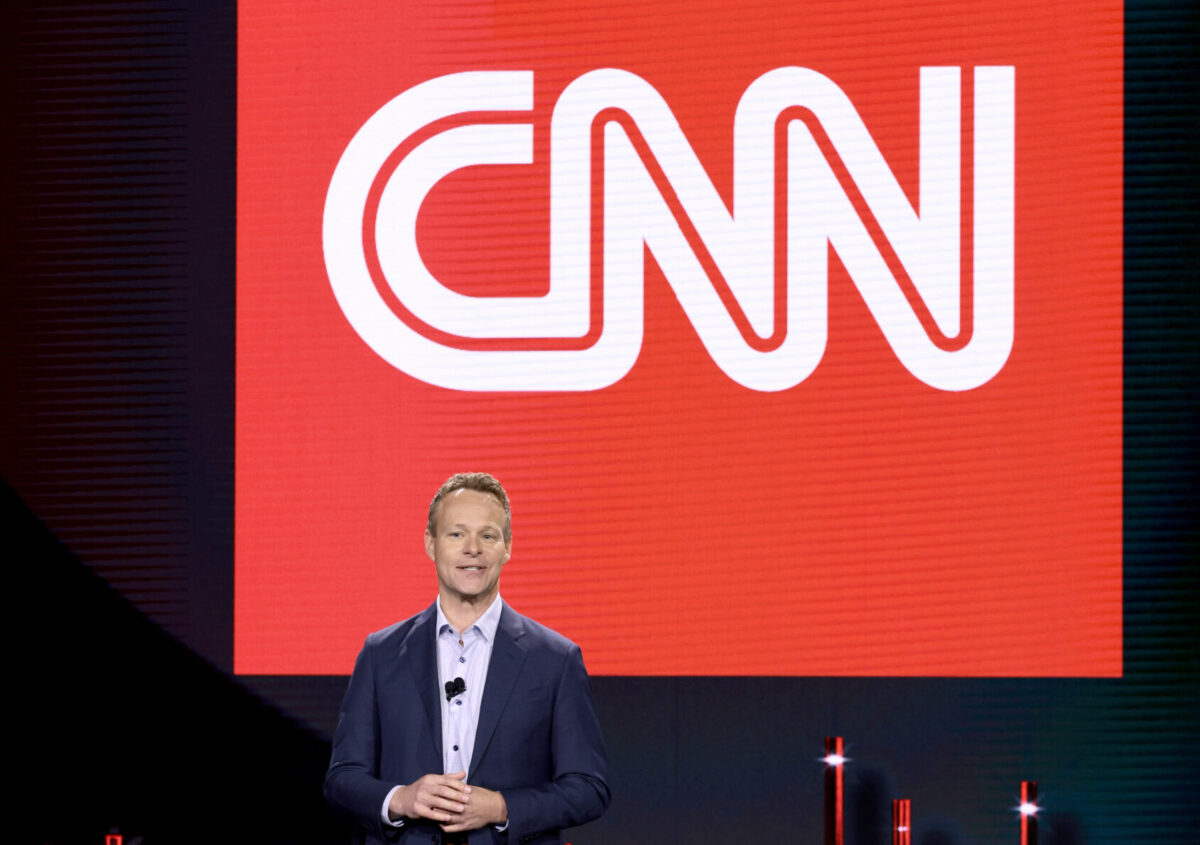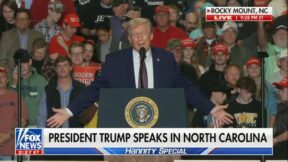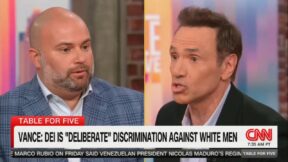Brian Stelter’s Ouster is the Clearest Sign of What a Chris Licht Led CNN Will Look Like

Dimitrios Kambouris/Getty
The final episode of CNN’s Reliable Sources aired on Sunday, ending a 30-year run as a network fixture. The show was canceled last week, along with its host Brian Stelter, who became for many the face of the cable news network in the last year of the Jeff Zucker era.
But outside our cabal of media-obsessed nerds (like myself!) Stelter’s departure made few ripples in the pond of public attention, which suggests the decision by new CNN boss Chris Licht to cancel the show— and fire its host — was a savvy one.
It’s also the clearest sign to date of what Licht’s CNN aims to look like.
Licht took charge of the network in mid-spring, first embarking on something of a listening tour of top executives and talent at the network. When he announced his executive team, almost entirely comprised of former Zucker deputies, there were some insider whispers that his management of the cable news giant would be more custodial than visionary.
(That criticism overlooks the fact that several top executives have left in recent months, most notably CNN digital chief Andrew Morse, as well as digital editorial head Meredith Artley.)
But CNN is far from a broken institution, and a complete rethink of the network would be a waste of time. Yes, revenue is down, but not dramatically so, and it’s in accordance with a predictable pattern in the year or two after a general election (not to mention the costly immolation of CNN+).
Still, Licht has made significant changes. The biggest thus far: the ouster of Stelter and Jeffrey Toobin, the network’s chief legal analyst.
According to the cable news rumor mill, more high-profile names will be dismissed in the coming weeks, a likelihood Licht did not tamp down on an internal call with network staff last week.
“This is a time of change, and I know that it’s unsettling,” he said. “There will be more changes and you might not understand it or like it all.”
A better interpretation of Licht’s first four months is not that he’s been custodial but that he’s focused more on what CNN is not rather than seeking to outline a vision of what it will be in the future. The network is not on any political team, Licht sought to hammer home when he instructed staffers to avoid using “Big Lie” to refer to former President Donald Trump’s false stolen election claims.
The dismissal of Stelter and Toobin could be seen, especially by critics, as addition by subtraction.
It makes sense that when plotting a new course, phase one would be to get rid of those slowing your journey down (perhaps because they have a different destination). It’s akin to pruning branches of a growing tree, allowing for a healthier trunk with a sturdier foundation.
Under Stelter’s watch, Reliable Sources became an academic discussion of capital-J journalism that erred on the side of earnest theoretical discussion over entertaining insight. The show could be pompous, and the relentless bashing of conservatives by its host and guests made Stelter a top target of the right — a fact that certainly did not play in his favor under the new Warner Bros. Discovery regime, which boasts John Malone as one of its biggest investors.
The final episode was Stelter’s Reliable Sources in a nutshell.
We are very important to the future of Democracy. Joining me now to discuss this is Brian Karem. Brian, how important are we to the future of democracy?
We are VERY important, Brian.
The kind of self-serving insight served up by Reliable Sources turned most people off the elitist, media insider discourse that holds only one thing as absolutely true: we know best.
This may appeal to a certain set of Acela corridor viewers, it’s remarkably off-putting to a majority of viewers, at least judging by my small sample group of Kansas pals with whom I grew up.
It’s not hard to see how Licht could watch Stelter on air and see him as actually undermining trust in the media, as opposed to serving as a bulwark against attacks on the fourth estate. The show presented was a weekly tradition of media cannibalism in which Fox News — a CNN rival — was often the focus of coverage.
Fox News deserves to be criticized, as does every outlet. But when that criticism becomes an obsession, it can backfire. First of all, if you are constantly telling viewers how crazy something is on a competitive network, viewers will eventually tune in to see for themselves.
But the more significant issue is the presentation of us vs. them between CNN and Fox News allowed Fox to paint CNN as the left’s version of Fox.
This is bad for CNN. The network’s position should be that they are the polar opposite of Fox News, but not on an ideological spectrum but a journalistic one. Meaning that while Fox News is political entertainment designed to outrage (and profit!), CNN is committed to the truth.
And this is where Licht’s vision for the network starts to emerge. The most precise expression of what he intends to do with CNN was written by senior media reporter Oliver Darcy in the last Reliable Sources newsletter co-written with Stelter. Darcy wrote:
But the important work of holding powerful media figures and institutions accountable will continue at CNN. It must continue. In the immediate future, this newsletter will take a brief summer hiatus. But in a few weeks, I will return with a reimagined product that expands our coverage and mirrors the complex media landscape our nation and world are facing today.
The newsletter will tackle trust and all who influence it, from news anchors to podcast hosts to popular internet personalities. It will examine broadcast and cable news, newspapers and digital news sites, social media companies, streaming services, and all the platforms that make up our modern information economy. And, perhaps most importantly, it will be unflinching in its coverage. You have my word on that.
Licht’s decision to show Stelter the door reveals not just what he doesn’t want the network to be under his watch. More importantly, it shows how he wants the network to look moving forward. And it took balls to let go of such a high-profile anchor, which is a rare leap of faith for a cable news executive in this current climate.
This is an opinion piece. The views expressed in this article are those of just the author.





Comments
↓ Scroll down for comments ↓